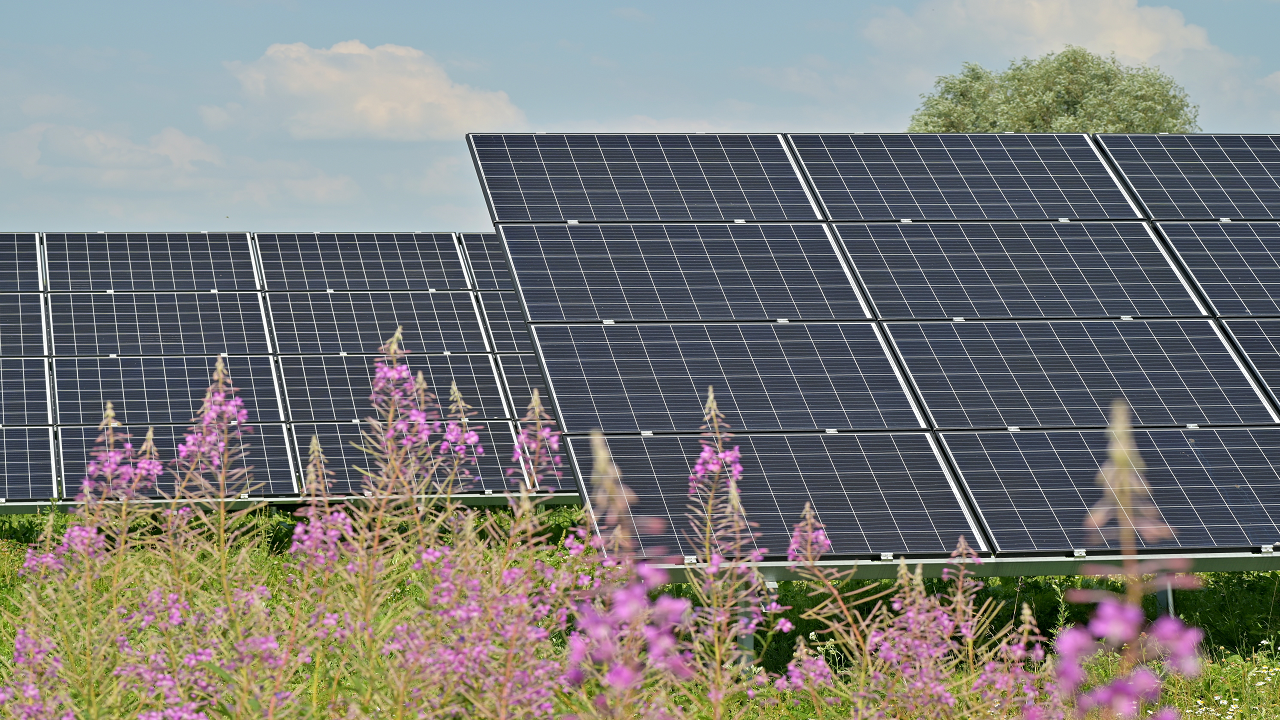
Agriculture demands significant manual effort spanning extended periods, often spanning months to years. The outcomes of crop production are also notably uncertain, compounded by the additional challenges of managing irregular monsoons and inadequate electrical systems. However, Indian farmers possess a valuable asset in the form of the country's tropical climate, which presents an opportunity to fulfil their energy and water requirements through the utilization of solar panels in their fields.
The integration of solar panels into the agricultural landscape of India can yield a multitude of advantages, effectively tackling diverse hurdles and promoting environmentally responsible farming techniques.
Solar Panels Effect On The Practice Of Farming In India
1. Energy Independence: Many rural areas in India face frequent power shortages and unreliable electricity supply. By installing solar panels on farms, farmers can generate their own electricity, ensuring a consistent and reliable power source for irrigation, machinery, and other farm operations. This reduces dependence on the grid and improves productivity.
2. Irrigation: Agriculture is highly dependent on water, and solar-powered irrigation systems can help pump water from wells or other water sources for crop irrigation. Solar-powered pumps can operate during the day, utilizing abundant sunlight, which aligns with the water needs of plants and can improve water efficiency.
3. Cost Savings: Once solar panels are installed, they have a relatively low operational and maintenance cost. Over time, the savings on electricity bills can be significant, helping farmers to redirect funds towards other essential needs.
4. Diversified Income: In addition to farming, solar energy can provide farmers with an additional source of income. By generating excess electricity, farmers can sell it back to the grid through net metering or participate in government incentive programs, thereby generating revenue.
5. Reduced Carbon Footprint: Solar energy is a clean and renewable energy source, which means that using solar panels can help reduce greenhouse gas emissions and contribute to mitigating climate change. This aligns with sustainable farming practices and environmental stewardship.
6. Improved Crop Yields: Access to reliable electricity for irrigation, machinery, and other purposes can lead to improved crop yields. Farmers can control irrigation schedules more effectively, leading to better water management and healthier crops.
7. Remote Access: Solar-powered technologies can be paired with digital tools and sensors, allowing farmers to remotely monitor and manage their farms. This can include monitoring soil moisture levels, weather conditions, and crop health, enabling informed decision-making and optimizing resource usage.
8. Rural Development: Installing solar panels on farms can contribute to rural development by creating local job opportunities for installation, maintenance, and repair of solar systems. This can stimulate economic growth in rural communities.
9. Government Incentives: The Indian government offers various incentives, subsidies, schemes, and policies to promote solar energy adoption. Farmers can benefit from these programs, making the installation of solar panels more affordable.
10. Water Pumping Solutions: Solar-powered water pumps can address water scarcity issues by drawing from groundwater sources. This is particularly important in regions with unreliable or depleting water resources.
11. Reduced Diesel Dependency: Many farmers rely on diesel generators for power, which can be expensive and contribute to air pollution. Solar energy can replace or supplement these generators, reducing fuel costs and environmental impacts.
Cost of Solar Panel Installation In India
Installing solar panels at your residence can lead to lower monthly power expenses, especially for those facing high electricity bills. However, be prepared for initial setup costs in India, covering solar equipment, panel mounts, and labor. Properties with good sun exposure can recoup these costs in 6 to 8 years, with the time frame influenced by electricity costs, property size, and payment approach.
Average Cost of Solar Panel Installation for Home
The cost of installing solar panels varies based on factors like structure type, roof specifications, shading, and utility considerations. For a 3kW system, the average home installation cost ranges from Rs 1,89,000 to Rs 2,15,000, with a per-watt price between Rs 75 and Rs 85 in India.
|
Solar System Size |
Price Range (Estimated) |
|
1kW Solar System |
Rs. 75,000 – 85,000 |
|
2kW Solar System |
Rs. 1,50,000 – 1,70,000 |
|
3kW Solar System |
Rs. 1,89,000 – 2,15,000 |
|
4kW Solar System |
Rs. 2,52,000 – 2,85,600 |
|
5kW Solar System |
Rs. 3,15,000 – 3,57,000 |
|
10kW Solar System |
Rs. 5,31,000 – 6,07,000 |
Prior to making the switch to solar power, it's crucial to evaluate the potential financial implications over the long term. This involves taking into account factors like your electricity expenses, location-related variables, the nature of solar equipment, and governmental incentives. Here are the essential measures to gauge how your savings align with the cost of your solar setup over the typical 25-year system lifespan.










